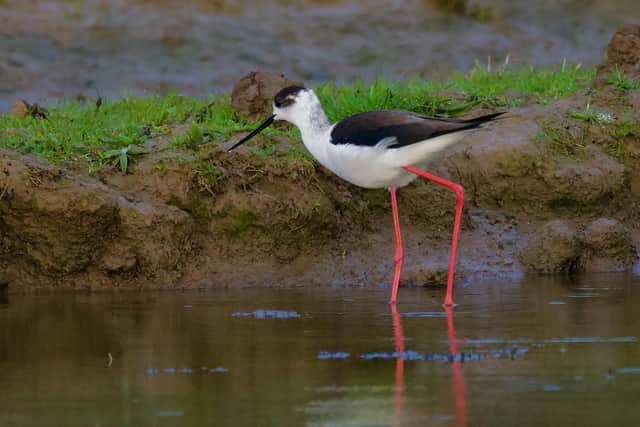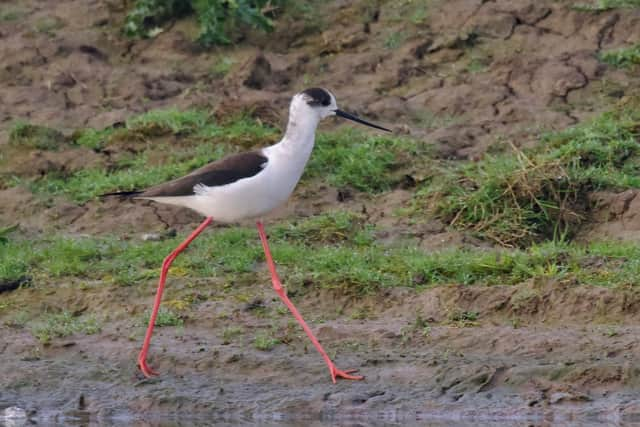A first for Lincolnshire as rare birds make history at RSPB reserve near Boston
and live on Freeview channel 276
Four black-winged stilt chicks have hatched at RSPB Frampton Marsh - marking a historic first for the county.
The pair are the first recorded stilts to breed in Lincolnshire, and all four of their eggs hatched successfully.
Advertisement
Hide AdAdvertisement
Hide AdThe birds made their nest within a fenced off protective zone, which increases the chances of species such as avocet, lapwing and redshank raising young.


John Badley, senior site manager at RSPB Frampton Marsh, said: “We’re thrilled to welcome these captivating birds, and to have the honour of seeing the first black-winged stilt chicks ever to hatch in Lincolnshire.
“Our staff and volunteers work incredibly hard to protect all the species here at the reserve, and by taking steps such as putting up protective fencing, we’re doing everything we can to see nature flourish here.”
The first stilt arrived at the site on May 1, followed by two more later that day. The birds are thought to be a relatively young pair, with an additional male in tow.
Advertisement
Hide AdAdvertisement
Hide AdThe pair’s first egg was laid ten days later, with three more appearing in the following days.


Stilts incubate their eggs for between 22 and 26 days and all four hatched around the same time.
Dr Chris Andrews, visitor experience manager at RSPB Frampton Marsh, said: “Black-winged stilts have been expanding their breeding range to the south of the UK, and more tend to arrive in spring when their favoured wetlands in southwest Europe dry out due to drought.
“Much of Spain and France have been experiencing severe drought conditions, which has doubtless caused the influx of stilts to the UK this spring, alongside other species like night heron, purple heron and great reed-warbler.”
Advertisement
Hide AdAdvertisement
Hide AdBlack-winged are widespread across southern Europe, and were rarely seen in Britain, but are now increasingly colonising on our shores. They first bred in the UK at a sewage farm in Nottingham in 1945, and on three more occasions until 2005. Since then, the numbers visiting the UK have increased, but they remain very rare.
They are wading birds with black and white plumage, stunning long pink legs and a long bill, which they use for picking small insects from the water.